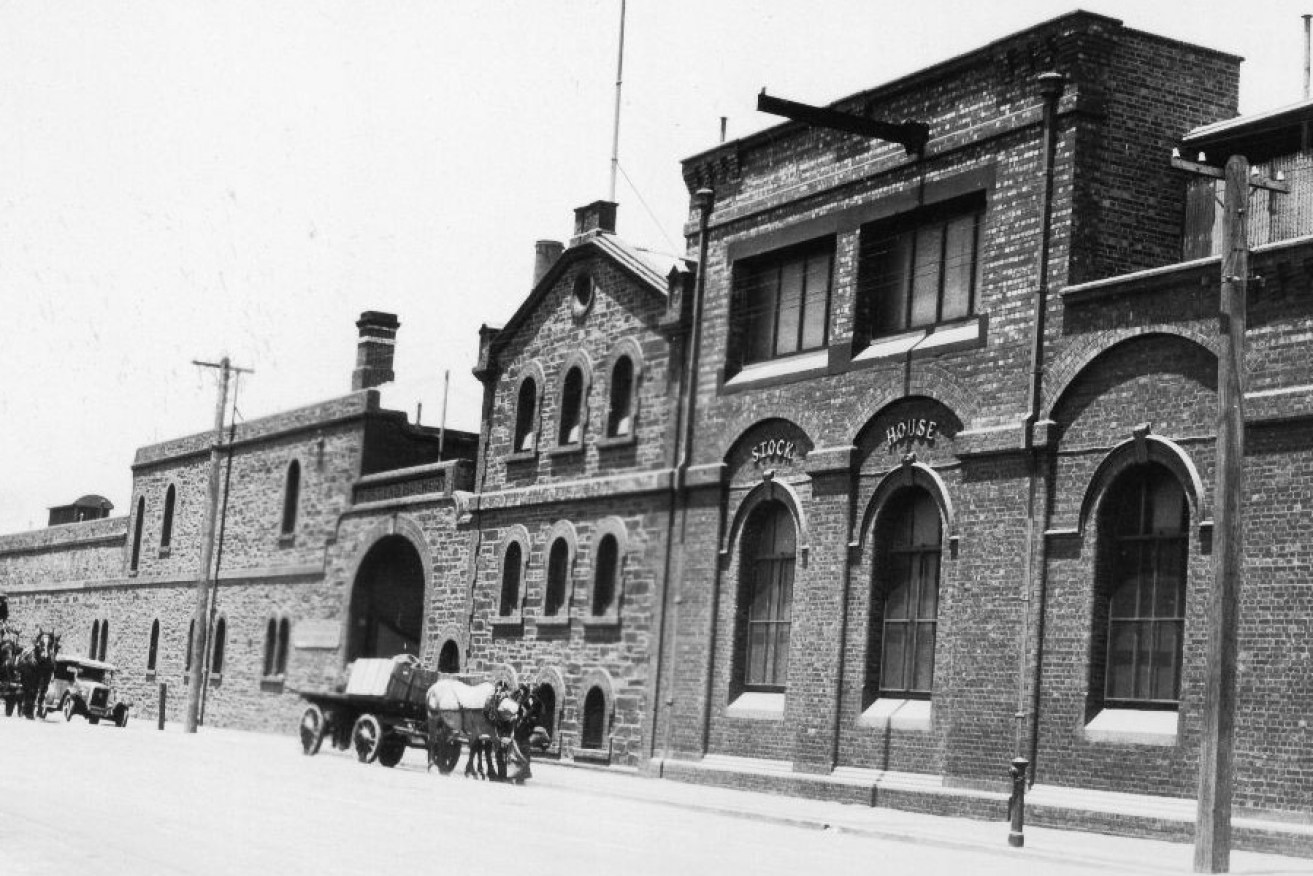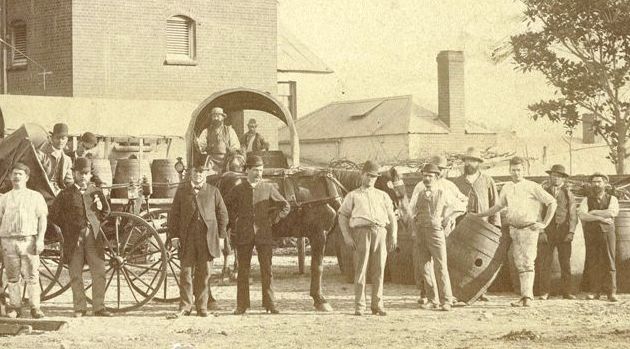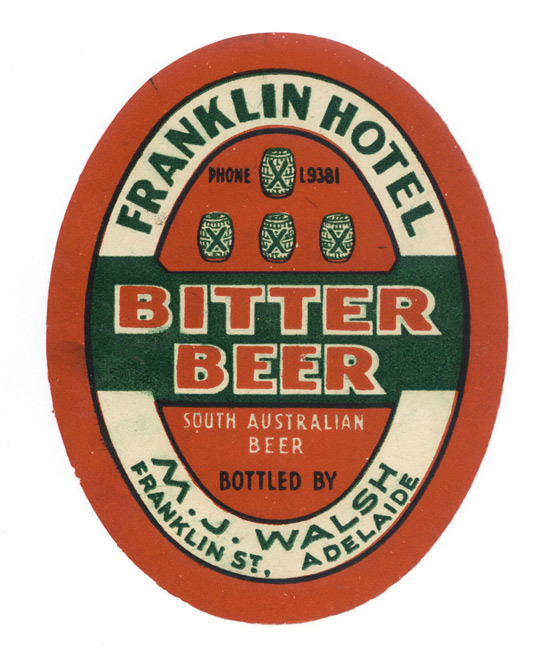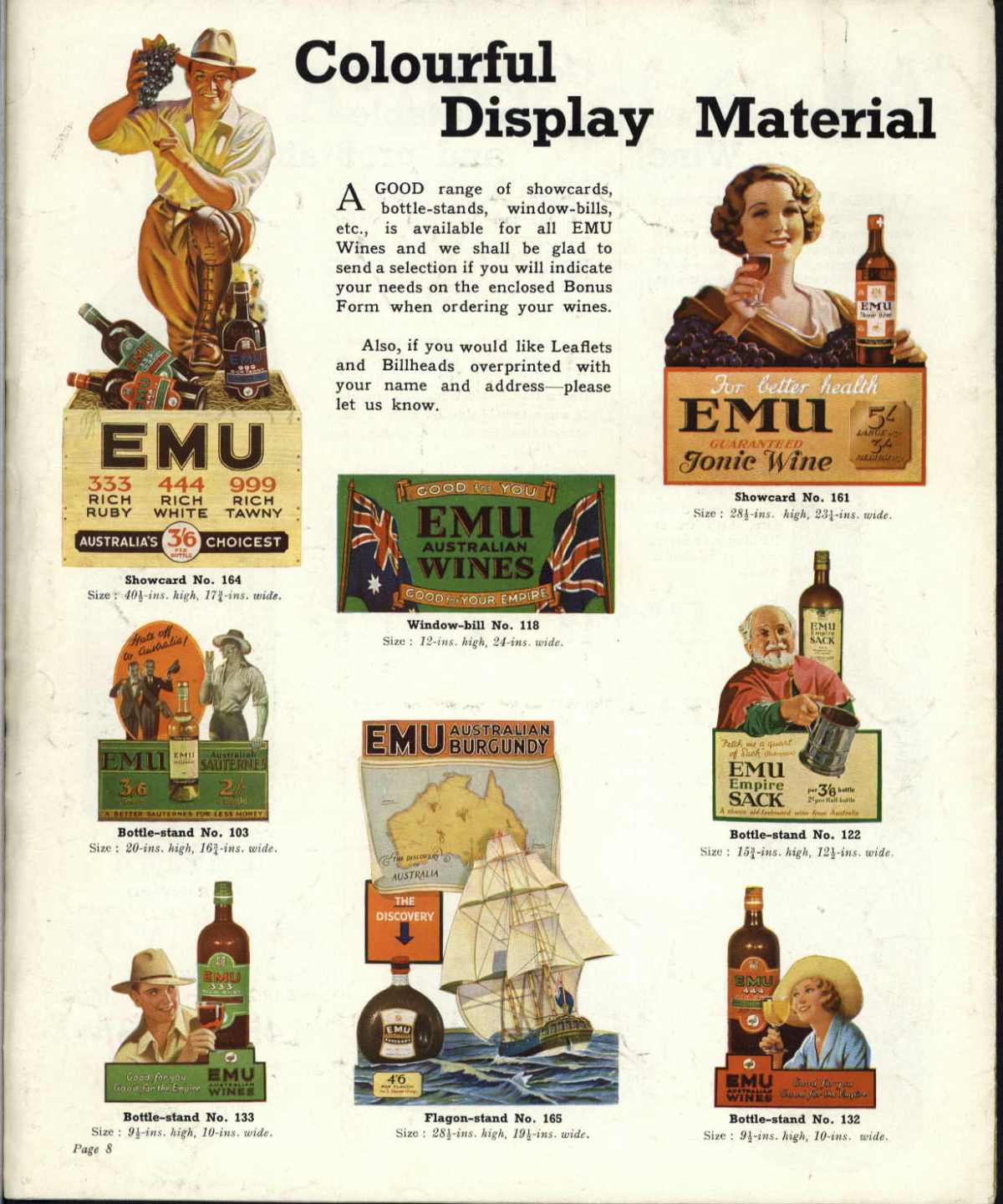Four-pot perk for SA brewery workers

West End Brewery in Hindley Street, 1925. Photo: State Library of South Australia
Back in the day, SA Brewing Company workers were allowed to take four six-minute breaks each day to enjoy a pot of beer.
Not surprisingly, the brewers found it easy to hire employees, even when other industries were suffering from labour shortages.
But workers were also accident-prone, with a 1944 report to the Labour Department including a long list of injuries such as cuts, burns and horse bites – probably from the animals that were used for deliveries up until the 1950s.
Was there a link between the beer breaks and workplace mishaps? You can hop to your own conclusions.
National Archives employee Jeremy Sibbald, a keen home brewer himself, has been researching the history of alcohol in Adelaide and will be sharing stories such as these at a talk at the Franklin Hotel this Saturday as part of SA’s History Festival.
He says it’s not clear from the records when the workers’ beer perk was introduced, nor how long it lasted.
“The file that it’s recorded in is from the late 1940s but I think it went through to the 1950s. It seems like it was a pretty well-established tradition.”

Workers at West End Brewery, which became part of SA Brewing Company, circa 1888. Photo: State Library
Sibbald says much of the archival material on alcohol comes from the records of the Customs Office, which was an important part of the South Australian economy.
“It’s amazing what you find in the Archives’ records. For example, when brewers reported large amounts of waste in 1914, Customs officers realised they were losing a valuable source of revenue – duty on the beer consumed by employees.”
The Archives also offer an insight into the brewing industry’s output in the late 19th century, when the first beer excise act was passed and brewers were required to declare how much they intended to brew in a year. In 1894, for example, Thomas Cooper’s stated capacity was 522 hogsheads, with one hogshead equal to about 240 litres. At the time, Cooper sold only sold bottled beer.
Sibbald says one of the interesting stories he uncovered revealed how a hotel in Morgan got around regulations introduced to control the buying and selling of beer after World War II.
“There was somebody [from the hotel] going to Springfield brewery under the guise of sporting organisations and buying one barrel at time and on-selling it through their bar so they could buy and sell above their quota.”
In 1950, the SA Brewing Company cracked down on hotels that were buying bulk beer and bottling it under their own labels, thereby cutting into the company’s own bottle sales.
While these days there is much debate about excessive drinking in Australia, Sibbald says the archival records give no indication that there were any such concerns in decades past. In fact, as the brochure below shows, EMU wines even sold a “guaranteed” Tonic Wine “for better health”.
Jeremy Sibbald will present his free talk, Drink in the Past, at the Franklin Hotel in Adelaide this Saturday from 2pm until 3pm.







